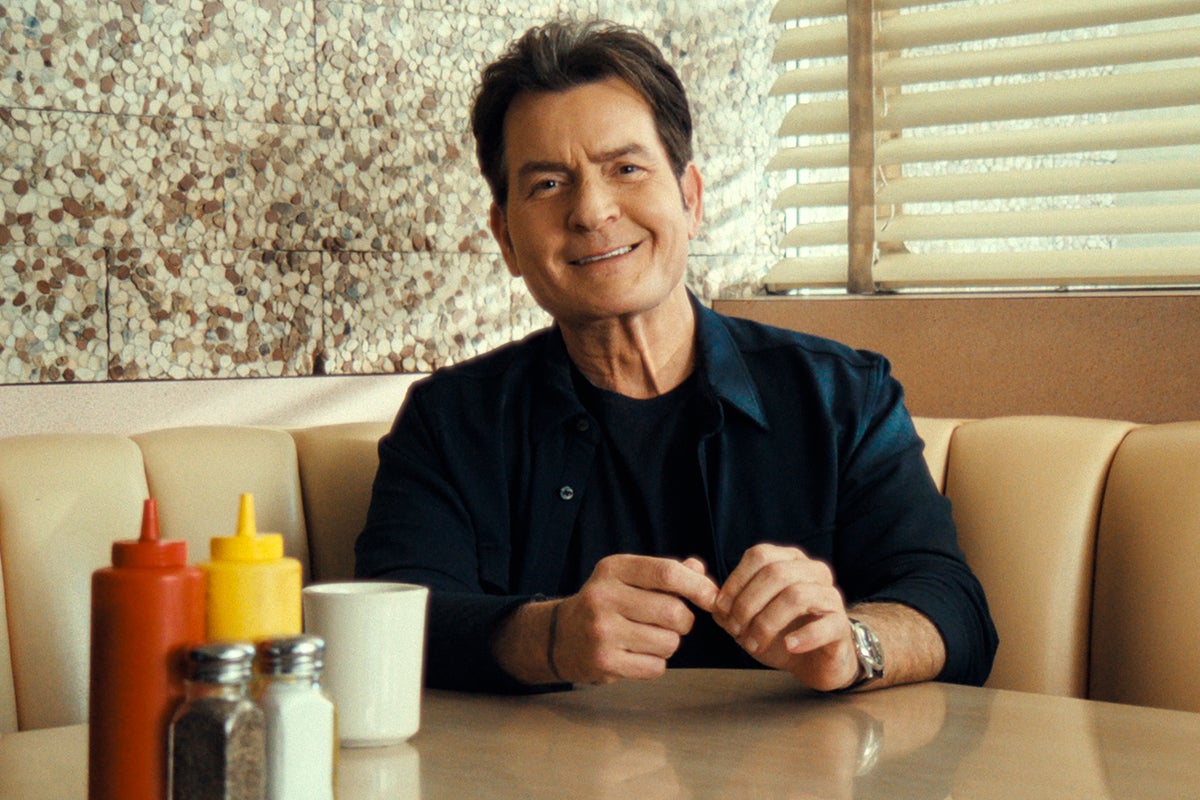Your support helps us to tell the story
From reproductive rights to climate change to Big Tech, The Independent is on the ground when the story is developing. Whether it’s investigating the financials of Elon Musk’s pro-Trump PAC or producing our latest documentary, ‘The A Word’, which shines a light on the American women fighting for reproductive rights, we know how important it is to parse out the facts from the messaging.
At such a critical moment in US history, we need reporters on the ground. Your donation allows us to keep sending journalists to speak to both sides of the story.
The Independent is trusted by Americans across the entire political spectrum. And unlike many other quality news outlets, we choose not to lock Americans out of our reporting and analysis with paywalls. We believe quality journalism should be available to everyone, paid for by those who can afford it.
Your support makes all the difference.Read more
“People get excited by trainwrecks,” Brooke Mueller, the ex-wife of Charlie Sheen, observes in aka Charlie Sheen, a new Netflix documentary about the actor. “Unfortunately.” It may be unfortunate but it’s perhaps inevitable. After all, Netflix currently has nine documentaries – from “Balloon Boy” to “Poop Cruise” – available in a separate series called, sure enough, Trainwreck. The streamer understands, like no other broadcaster, the tabloid allure of a very public disintegration. Here, with aka Charlie Sheen, a two-part film, Netflix serves as both train conductor and crash investigator as the Sheen locomotive heads off the rails.
Charlie Sheen, born Carlos Estevez, grew up part of a dynasty. His father was Seventies heartthrob Martin Sheen and his elder brother, Emilio Estevez, was a core member of the “Brat Pack”, a group of actors who captured the zeitgeist of the 1980s. But young Charlie threatened to overshadow the whole clan after breakout performances in the likes of Ferris Bueller’s Day Off, Wall Street, and the 1986 Best Picture winner, Platoon. That early promise feels a distant memory now, after a long career marred by drug abuse, legal issues, and (perhaps most troubling of all) an eight-season stint on Chuck Lorre’s much-maligned sitcom, Two and a Half Men. It is a different tale to the classic Hollywood story of persistence, of not succeeding at first but trying and trying again. “But if at first you succeed,” Sheen muses, “what do you do?”
His answer: drugs and sex workers and ill-fated marriages. Now 60, Sheen is photographed for the film in a diner, trapped behind a linoleum table, dragging on an e-cigarette. “It got away from me,” he confesses, of life after the first flush of fortune. It is a story, really, with two nadirs. His early drug use, partying hard with fellow nepo baby Nic Cage, which landed him in hospital and rehab, and then the second, starker breakdown, which saw him fired from Two and a Half Men amid a very high-profile unravelling. Contemporary news reports described the latter crisis as “his assault on pop culture”, which made him a bigger star than ever, even while he became unemployable (and probably uninsurable). That was in 2011; now he’s sobered up and is telling his own story.
And this is very much his own telling. His father, Martin, and brother, Emilio, declined to appear (“Would I love them both in this? Absolutely,” he admits. “But I completely understand why they chose not to”). Two of his ex-wives – Mueller and Denise Richards – are in, while two of his five children opt for an appearance. It makes for a selective tale that privileges a narrative of manic but benign destruction. Allegations such as the discharge of a firearm that injured ex-girlfriend Kelly Preston, or Richards’ insinuations about his preference for young-looking men and women, are breezed over. In a final-act Q&A session, he rebuffs Corey Feldman’s (admittedly very problematic) accusations that he sexually assaulted the late Corey Haim, and makes clear that, despite settling several lawsuits over recklessness about his HIV diagnosis, he has never actually infected any third party. “That’s important,” a disembodied voice, from behind the camera, says. Important, perhaps, but not quite an excuse.
But PR exercises (and Netflix has successfully conducted several: Robbie Williams, Miss Americana, Beckham etc) do allow for great access. aka Charlie Sheen brings in superb talking heads (including a bowl-cut-sporting, chain-smoking Sean Penn), as well as family videos, old Super 8 skits by the Estevez brothers, and decades of footage from across the actor’s projects. These movie and TV clips are deployed, very effectively, as a collage that reconstructs the highs and lows of Sheen’s off-screen life. The story of a drug relapse, for example, is set against shots of his father stumbling through the opening scene of Apocalypse Now. It is a visual gimmick that also makes an important point: the narrative of Sheen’s life has always been inextricably tied up with the false glamour of show business. Attempting to totally disentangle Charlie Sheen the Actor from Charlie Sheen the Drug Addict is folly.
“It’s been liberating,” Sheen reveals, after finally copping to his much-rumoured bisexuality. “Just to talk about stuff. A train didn’t come through the side of the restaurant.” Even if this is calculated candour, it’s still effective. Sheen is a product of a media infatuation, driven to become an icon of immoderation by a combination of inner demons and external devils. aka Charlie Sheen is an exercise in damage control that revels in the destruction, only pulling back right at the edge of excess. It is – as Sheen himself would put it – a winning formula.

